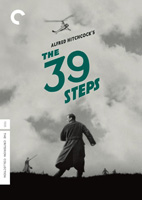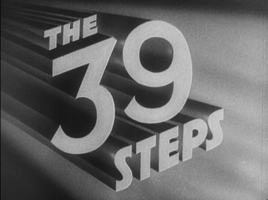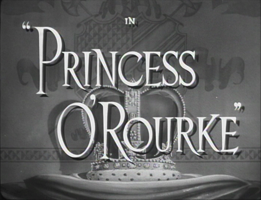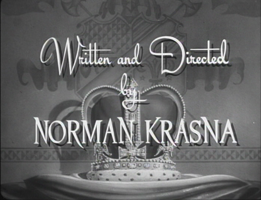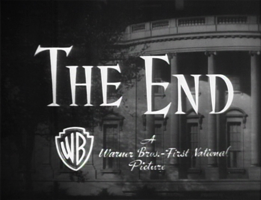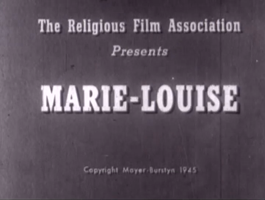
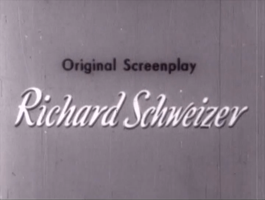
Winner in the category of WRITING (Original Screenplay) at the 18th Academy Awards, presented March 7, 1946 at Grauman’s Chinese Theatre.
The other nominees were:
In Which We Serve — Noël Coward
The North Star — Lillian Hellman
Air Force — Dudley Nichols
What Next, Corporal Hargrove? — Harry Kurnitz
Opening of screenplay:
1. I n v a s i o n (Mittwoch, 12. Juni 1940)
Landstrasse in Frankreich
(Nacht)
Aufblendung
1. Gross
Vier Ziffern erscheinenMusik
klein und undeutlich.Die Musik des Vorspanns geht
Ziemlich rasch heben sieunmittelbar in den ersten
sich deutlicher vomKomplex über.
dunkeln Hintergrund ab,Ernstern Charakter, dem Rhythmus
kommen nach vorn undder folgenden Bildvorgänge
bilden jetzt gross,entsprechend.
die Bildfläche beinahe(durchgehend)
ausfüllend,
die Jahreszahl 1940.
Die Jahreszahl verschwindet,
indem sie sich nach vorn
verliert.
In der dunkeln Bildfläche
wird jetzt ein schräg ge-
stelltes Autoschild (fran-
zösische Nummer) sichtbar.
Ueber das Schild ziehen
Schatten.
Kamera fährt zurück
Das Auto wird sichtbar.
Es steht schräg geneigt
am rechten Strassenrand.
Die Wände der Karosserie
und die Bereifung sind
von Kugeln durchlöchert.
Der Lichtkegel eines ab-
geblendeten,
aber vorläufig noch nicht
sichtbaren Scheinwerfers
trifft den zerstörten Wagen.
Schatten von Menschen ziehen
darüber weg.
Kamera fährt zurück bis
Halbnah.
My translation:
1. I n v a s i o n (Wednesday, June 12, 1940)
A country road in France
(Night)
Fade in
1. Close-up
Four numbers appearMusic
small and indistinct.The music of the credits goes
Almost immediately, they standdirectly into the first
out more distinctlysequence.
from the dark background,More serious in character, in
come forward andaccordance with the rhythm of
now grow big,the following visual events.
almost filling the screen,(continuous)
the year 1940.
The year disappears,
moving forward
out of sight.
On the dark screen
an obliquely angled
license place (French
number) now becomes visible.
A shadow is cast
over the plate.
Camera pulls back.
The car becomes visible.
It stands at an angle
on the right side of the road.
The walls of the body
and the tires
are riddled with bullet-holes.
The cone of light from a
dimmed, but as yet
unseen headlight
falls on the destroyed car.
The shadows of people
are cast against it.
Camera pulls back to
Medium shot.
First lines in finished film, which begins differently (at least in the “Religious Film Association” copy we watched):
June 1940
The German armies approaching the Seine.
Rouen a field of battle.
The civil population in panic.
— Vous apporter beaucoup trop trop, Madame Fleury. Croyez-moi, dans deux ou trois jours vous serez de retour!
— Il est facile de parler comme ça. Le seul dans la vie, il ne va s’occuper de personne.
— You are bringing too too much, Madame Fleury. Believe me, in two or three days you will return!
— It’s easy to talk that way. One who is alone in life, he is not going to take care of anyone.
subtitled as:
— You’re taking too much, Mme. Fleury… Why, you’ll be back in a few days!
— You’ve only yourself to think of.
[We are joined by MRB courtesy of the technological marvels of the day]
ADAM Welcome to our little party.
MRB Thank you.
BROOM We four are the only people who have seen Marie-Louise.
ADAM That’s probably true, the only living people. Though Pierre could still be alive.
MRB Well, he’s not!
ADAM Yeah. That was sad. Though this movie was nothing more than a gesture, I found it very affecting. I cried several times.
BETH I didn’t cry, but I was moved the entire time, and completely engaged. It was very interesting to see how Switzerland was making movies in 1943, because it had nothing to with how Hollywood was making movies.
BROOM I’m not sure Switzerland made enough movies to have “a way” that Switzerland made movies.
BETH Well, whoever made this movie was not being influenced by the American system.
ADAM I think now we can all speak pretty authoritatively about 1940s Swiss filmmaking.
BROOM I can speak with the slightest authority, because in searching for this, I had to go down the byways of the internet that have to do with buying Swiss films from the 40s. And there are some, and they’re very obscure, and the affection for them is similarly obscure. There’s no bragging about them. The VHS copy of Marie-Louise that’s being sold in Switzerland is being sold by the institution that produced it, and their site makes no claims at all about the value. And that’s how this felt. It felt not unlike an American PSA-type film.
BETH It was more than that, but I know what you’re saying.
BROOM Yes, it was more than that, but it didn’t feel like some it was some other tradition that was artsier and higher.
MRB BETH just said 1943. This won in 1945. Was it made in 1943, that you know of?
BROOM I think it was released in 1944 in Europe and only in 1945 in the US, which is why it received a 1945 Oscar. But it was actually a 1944 movie, and maybe made the previous year.
MRB So it was made during the war, for sure.
BROOM Yes. I found a web page about the movie where there was a promotional press release from the time, in German, saying “Many people, since seeing the film, have wanted to know what happened to the little girl who played Marie-Louise.” Because the story of the movie was essentially true for the real actors involved. They were asking, “How’s she doing in France?”
ADAM She died.
BROOM Well, as of the time of that press release, she was okay, but that was probably only six months later. I don’t know what her life story is. I tried to look her up and couldn’t find anything. I’ll do more googling now that we’ve seen it. [ed: Still no trace of “Josiane Hegg” after 1945.]
ADAM Let’s talk about why it was composed so oddly. It didn’t have anything resembling a plot that I understood. Maybe it’s because I had too much wine, but by the end, I just didn’t understand what was happening.
BETH The last half-hour just went in another direction. I don’t know why! Like, why was that kid introduced? Why was the troublemaking boy part of the story?
BROOM That is a question.
MRB He was sort of comic relief, wasn’t he?
BETH Yeah, but only introduced at the very last minute. Script-wise, it felt weird to me.
ADAM At the time, I said that I thought Mr. Rüegg was adopting the boy so that he could forcibly dress him as a girl and send him back to France in place of Marie-Louise, but that didn’t happen!
BROOM It did seem like something like that might happen.
ADAM I successfully predicted that she was going to drop the plate, so I was feeling confident.
MRB Yeah, I heard that coming too.
BROOM The way I understood it while watching was that this was a movie about a current issue, and we as Swiss audience members were supposed to feel good about Switzerland’s role. And once that had been addressed in a realistic and moving way, they had to wrap up the movie somehow, even though the issue is still an open question. This program involves sending people back into war zones, but the movie had to have a happy ending because it’s positive, so the arrival of that kid felt like: “We need a little bit of a distraction from this reality. We’re going to pull back a bit from here out. So here’s this kid…”
BETH Here’s a character!
BROOM “You know how French people are! Oh ho ho! Well, even the little boys are that way! A little boy like this will be fine, if we send him back on a train. So too will everyone else.”
BETH “I’m sorry I broke your central heating system.”
MRB And it also gave the grandfather — I know that’s not what he was…
BROOM Yeah, Geppetto.
MRB … Mr. Rüegg. It gave him sort of a consolation prize for giving up Marie-Louise. Though I guess André was leaving too.
ADAM Yeah, they sent him back after three days.
BROOM I don’t understand why he needed a consolation prize. They just sent her up to the chalet to, like, calm down.
MRB I meant for losing her.
BROOM But that’s not how it worked out. I see. Yes.
ADAM What do you mean? He gets to keep the beautiful model of her house, which was demolished.
MRB Oh yeah, she can’t take that with her. Did anyone get the Wizard of Oz vibe that I got twice?
BROOM I got a vague Wizard of Oz vibe, yeah.
MRB At the beginning, when all the adults are out, and she gets out of bed, and bombs are falling, and she’s alone in that place… I didn’t know what was going to happen, so I thought, “All the adults are going to be killed and she’s going to be left alone.” Which felt like The Wizard of Oz. And then when she’s on the roof hanging clothes, she’s essentially saying “Auntie Em, Auntie Em!” when she’s pounding on that door. That felt Wizard of Oz-like. That’s my film study.
BROOM I thought it at the end, when she was walking down the train tracks. She looked sort of like Dorothy going toward that backdrop. But with a real landscape. I thought that tracking shot was very pretty.
ADAM I was thinking about War and Peace the whole time, because I’m reading it. The part that I’m in — spoiler alert: Napoleon conquers Moscow and the city is burning. And it’s sort of like Gone With the Wind where Atlanta’s burning, but with really horrible depictions of what it’s like to be a refugee and have your city burning. And I don’t know what’s going to happen, yet, so it feels like it’s happening in real time. I was thinking about that at the beginning. This really was a graphic and moving depiction of what it would be like to be in a city that was being bombed. And it was awful.
MRB It was.
BETH It was. It felt like vérité, like it was a documentary.
BROOM I was moved in part because it wasn’t a documentary, it was a movie that had been filmed near the real time and place. This movie itself was not particularly slick, but they just needed to point it at those buildings, because it was really 1943. All the help they wanted to give my imagination was there in those settings. And it was genuinely well staged. At the beginning when she looks out the window and the curtains suddenly burst inward with the blast, I felt like it was both a real detail and a movie scare for a kid. It got me contemplating the fact that war actually scares actual little kids who are stuck in it. I saw a comment from someone online who had seen it when they were a kid in the 40s, who said that it really made an impression on them because it was the first time they had realized that children could be harmed by war. [ed: this is the reader review at the New York Times page as linked below]
ADAM I thought that the incomplete subtitles were actually effective, because it kind of made me feel what it would be like to be a refugee, where you don’t really understand what’s happening.
BROOM And like a child. A lot of the movie was shot from her point of view, and she didn’t know what they were saying.
MRB But that wasn’t intentional on the part of the person who provided the subtitles.
BETH No, but it did add to it.
MRB We’re evaluating this as Best Screenplay, and I felt like we only got about fifty percent of the screenplay. I’m not sure that was the best ratio.
ADAM There were no great lines. Well, maybe “I’m sorry I destroyed your central heating system.” And “Your house is so modern — do you have a ping-pong table?” was a pretty good line.
BROOM And I liked the father’s speech about “They said they were going to ask me afterward… but for me, afterward is too late.”
ADAM “Discussion unnecessary.”
BETH I laughed at that.
MRB “The president has nothing further to communicate.”
ADAM That’s the only Wilson joke anyone has made in the last 40 years.
BROOM From what we were able to pick up of it, I thought the screenplay had a nice delicate touch. The situations he set up were nicely balanced. Like the whole arrival, where the women in the household say “oh, we’ll eventually tell dad, it’ll be fine,” and we feel uncomfortable on Marie-Louise’s behalf because she’s completely helpless and should not be made the pawn of this. And then the ball rolls down the stairs… I felt just the right kind of uncomfortable through all that. It puts you in the child’s moral position.
ADAM Yeah. It did emphasize her total helplessness. The dad didn’t have to turn out to be this avuncular Swiss factory owner; he could have been a monster. This could have been any kind of movie. It could have been The Secret Garden. You know, the beginning. But in fact it was The Secret Garden: the middle and end.
BROOM That’s what I thought was effective. It ultimately was… maybe not a PSA but an issue movie — “We’re not going to push you too hard, but think about this issue. Come up and shake its hand” — but it had the spirit of children’s literature. I also thought of The Secret Garden. And some other book; I forget what.
MRB Heidi.
ADAM Is Heidi a refugee? Oh, I see, she’s Swiss.
MRB I don’t remember what her problem is, but she has a grumpy grandfather who she softens by her sweet lovableness.
ADAM This past weekend, my sister-in-law in Minneapolis was talking about a Somali refugee she had sponsored, and my nephew was like “What’s a refugee?” And she said, “Well, it’s someone who, when their country is in a terrible war and they can’t stay, they go to another country.” And he wanted to know what would happen if America got attacked. She said, “Well, we’re very powerful, so that’s unlikely to happen.” He didn’t really press the point, fortunately.
BROOM Canada is familiar to him, right? They must go to Canada sometimes.
ADAM They’ve been to Prince Edward Island. But I don’t know that he has any familiarity with what it’s like to be a refugee.
BROOM Well, neither do I, but I got some idea out of this movie.
ADAM I didn’t really have a point there. But it was a striking conversation. Luckily he forgot about it, so we didn’t have to follow it up.
BROOM I thought it was interesting to see any amount of Swiss national self-image, because that’s not something I’ve been exposed to before.
ADAM It was sort of like Canadian self-image: a kind of smug, quiet self-righteousness.
BROOM That’s not what I got at all! Are you joking?
ADAM No, I’m not.
BETH I got a little of that. I know what you’re talking about.
BROOM To me it was more like Soviet-style propaganda, when all the guys in the loom factory spontaneously start saying “Well, I think we should work longer hours to save the children!” “Well, I do too!” “I don’t know whether this will work, but we’ll try!” And then we see a montage of the looms going vroom vroom vroom!
BETH Everyone was like, “Fifteen minutes? Okay!”
MRB I was so touched by the fifteen minutes. I thought, “I would work fifteen more minutes to help something!”
BETH That’s what I thought too: “I’m happy to devote fifteen minutes for these kids!”
MRB I know! I thought it was great. What’s fifteen minutes?
BROOM So that’s Swiss patriotism: that sequence, and then a montage of the looms going, with stirring music.
BETH I really enjoyed watching those looms.
ADAM But there was a kind of smugness in “oh, there’s no airplanes here, of course.” Why didn’t Hitler invade Switzerland?
BROOM I don’t know.
ADAM Because it wasn’t worth it?
MRB Because they’re neutral! I always wondered how Switzerland gets away with saying “nope, we’re neutral.”
ADAM Well, right. [ADAM later looks it up] Anyway, after the technicolor triumphalism of Wilson, to go back into this flickering magic-lantern world felt like it suited the content.
BROOM Yes. I think for many movies, this kind of degraded image would have been an insufficient way to watch it, but in this case I felt like it was appropriate that I was imagining myself watching this in the church basement. Or rather the basement of The Religious Film Association.
ADAM I couldn’t help comparing this movie in my mind to… what was it? 2007’s Stalingrad. Remember? It was like a big-budget romantic war picture set in the battle of Stalingrad. Anyway, it was too high-budget. See it sometime; we can talk about it.
BROOM That really exists? Are you sure you’re not thinking of Australia?
ADAM It’s like that! It’s actually very much like that. I was going to say it was like Pearl Harbor. It’s that same kind of brilliantly overdone extravagant spectacle. But this flickering dream-world bombing was more effective, for having the curtain half-drawn on your understanding.
BROOM In the original print, I’m sure one could have seen more in those scenes. MRB, at the end of the opening scene, could you tell what it was that made her gasp when she looked down at the cart?
MRB No.
BROOM We couldn’t tell either. [ed: subsequent email from MRB: “I’m pretty sure we can see a body in a coat lying on the ground next to the cart. It is likely the unidentified neighbor woman who was impatient for the cart to come. It looks like the man from that opening scene is investigating and bending over her body.”]
MRB I didn’t really understand what was happening there. They were going to try to leave Rouen right then in a cart?
BROOM In the original screenplay, it doesn’t begin with that scene at all, it begins with a scene of horrors on the road as the refugees are trudging along. The first image is a car riddled with bullets at the side of the road.
ADAM [having looked it up] So… it’s not called Stalingrad, but I’m thinking of 2001’s Enemy at the Gates, with Jude Law, Joseph Fiennes, and Rachel Weisz.
BETH Ah.
BROOM That’s not called Stalingrad.
ADAM But it’s set in the battle of Stalingrad and has vivid ultra-Technicolor depictions of the battle of Stalingrad.
BETH That movie wasn’t a total failure.
ADAM I didn’t say it was a total failure.
BROOM But Stalingrad (2007) must have totally tanked!
ADAM Whatever. Both those years and those titles sort of blend together in my mind.
BROOM So: Richard Schweizer, winner for Best Original Screenplay. What do we think the Academy was thinking?
MRB How did it even come to their attention to consider it?
ADAM It was probably the Crouching Tiger, Hidden Dragon of its day.
MRB Maybe they were just feeling very paternal toward Europe.
ADAM Charitable, yeah.
BROOM I looked up the guys whose names are on the title screen as the American distributors. One or both have them must have gone to Europe and seen a lot of movies, and from out of what they saw, they picked this. They thought Americans would like something about this movie in particular.
ADAM And we did.
BROOM Yes, they must have gotten it right. Do you think Americans felt proud of themselves for sampling something European?
BETH Yes.
ADAM I think we felt proud of ourselves for our generous and paternalistic role in the war, and this was flattering to that.
MRB Was it? How did this flatter America?
BROOM I think this flattered that same attitude, but from the Swiss point of view.
ADAM Yeah, but it was basically our point of view. To say, “Look at all we’re doing for these wretches.”
BROOM It wasn’t about what we, Americans, were doing; it was about what “we,” the psyche of the audience, are doing. What we, good people, are doing for them, helpless people.
ADAM It wasn’t literally about America, but it was about goodwill toward the unfortunate, which is what we pride ourselves in.
BROOM Being good. Being nice. “If you saw this little girl, would you want to give her the best dollhouse in the world? I should hope so! Would you want to make her laugh?” I liked that the movie was summed up by him saying “My teacher used to pull my ear like this!” and when she doesn’t laugh at that, he’s horrified. “My god, war is terrible!”
ADAM To pick another recent analogy: what did you think of Life is Beautiful? And did you think that this had any of those defects?
BROOM That was a very strange phenomenon.
BETH Didn’t see it.
[the movie is summarized for her]
ADAM This movie isn’t really like that, because it’s not as cynically self-involved. But is there anything problematic about putting this wartime experience between the cottonballs of her beautiful dollhouse, and so on? I mean, her brother dies, so that’s pretty sad.
BROOM I think we’re shown real harshness of the beginning, where they tell us that bombs really do fall on people and blow them up, and then later when it happens to her brother, where they show us…
ADAM His tiny coffin.
BROOM With his little voice coming from inside: “I was born in February 1937…” That was pretty sad stuff. And the mother looking destroyed. They also showed his cot smashed to smithereens, before they showed the funeral. That’s all pretty unvarnished. So they earned the right to focus on comfort: “You’re happy to stay in this nice bed, aren’t you? Yes! It is nice of us.”
ADAM Then why is she so happy to go back at the end, after her nervous breakdown?
MRB She did miss her mother!
BETH Yeah, I think it was a reality check for her to be put in this chalet, and realize, oh, she doesn’t really want to live here.
BROOM In the most beautiful place in the world.
BETH Right, she wanted to live with her family.
ADAM … at the chalet.
BROOM Maybe that was part of the point of having the naughty kid take her bowl: being a refugee means living with random weirdos.
MRB … So it’s better to go back to the bombing?
BROOM Well, one wants to be with one’s own family.
MRB Those kids weren’t being rescued; they were just getting a respite from their terror. And it was only a three-month respite, and they were always going to go back. It was like, “these kids are too stressed out and they just need a break.”
ADAM That’s such a strange idea!
BROOM It is strange that they weren’t ready to say, “Since all of Europe is banking on this war ending sometime, we’ll just keep these kids safe until then.” I mean, if they had known in advance that the war was going to end in 1945, I’m sure they would have said that. But it still suggests this strange attitude of, “The best we can offer you is three months! After all, you wouldn’t want to be away from the bombing for more than three months. Your mom needs you.”
MRB “You’d miss it.”
BROOM At the end of the movie, BETH and ADAM both said “I really thought we were going to see the reunion with the mom at the end.” There was something strange about Madame Fleury not reappearing after her son’s funeral. IMDB says this movie is 103 minutes long, whereas the version we just watched is 90 minutes long. But so is the VHS being sold by Praesens in Switzerland. So I’m not sure if there ever was a 103 minute movie or what.
MRB After I watched it the first time several days ago, I googled something, I can’t remember where, and it said that you could tell that parts of it had been chopped up. I don’t know what parts they meant.
ADAM The music suddenly dies off in a couple places.
BROOM The soundtrack was in bad shape throughout. Like I said, I expected from the screenplay that the first image was going to be a bullet-ridden car, and it’s not. But then again, the title music gets prematurely cut off by a splice, and then the first scene starts. So there may well have been some scene at the beginning that was deemed unpalatable for the international audience. Or possibly just unpalatable for distribution by the Religious Film Association. I don’t think that title screen is what the Academy voters saw. I think the Religious Film Association bought a copy for their own use, and then stuck their own titles on it, and maybe made their own edits. And that’s the copy that happened to get transferred to this bootleg disc. That’s what I suspect. So it’s hard to know what we’ve seen here. Anyway, it was a sweet movie.
ADAM Yeah, it was deeply affecting.
MRB I agree.
ADAM But I would not recommend it.
BETH I think I would recommend it if it were available in a better copy. I’m happy to have seen it.
BROOM It was like something you’d get shown in school, and for that it was excellent.
MRB Right. Someone said earlier that this is what they were making in Europe while Hollywood was making something else… How did they know to be so natural in front of the camera, when in the US nobody thought that was a good idea at the time?
BROOM I think Europeans are more relaxed.
MRB Or maybe Hollywood thought they were more advanced because they knew how to do schtick, where Europe was just being like people.
BETH It reminded me of a movie called Rome, Open City, which was shot right after Rome had been bombed.
BROOM You’ve heard of that.
MRB I don’t think I have.
BROOM 1945. It was Rossellini’s big break-out movie.
BETH So it’s after this. That’s interesting. I thought this had been influenced by it a little bit, but maybe the opposite is true. Anyway, I think there’s just a more natural attitude about everything. It seemed like the shots were more relaxed, and I liked that. “This is just gonna play out the way it plays out.” I liked that the music was not intrusive in most of the movie. There wasn’t a need to fill time with music.
BROOM I thought about that same stuff. At one point I thought something like: “Europeans are better at knowing what they’re doing and just doing it. And sometimes that can feel simplistic, but it’s also wholesome. This is a scene where X happens, and that’s exactly what’s happening. And if your mind starts looking around the edges of it, you might be able see the seams, that it isn’t a whole world. Whereas Americans, especially in this era of Hollywood, if you think carefully about their movies, you’ll reach the conclusion that they don’t actually know what they’re doing, or why, that it’s all fundamentally just distraction, but the distraction is effective, so you’re not as inclined to notice superficial thinness.”
BETH I thought a similar thing. My thought was: “Hollywood is manipulating in a particular way, and knows it; and Europe is manipulating the audience in an entirely different way, that to me feels like it doesn’t know it.” But they also knew it.
MRB I think “manipulating” is the word. Someone who’s sad is “manipulating” you to feel sympathetic, but that’s not called “manipulation,” it’s just feeling; that’s just called “somebody who’s sad.” It seems like in the US, in Hollywood films, they would calculate how to make you feel a certain way, but here it’s just like, “these humans feel this way, and you’re going to feel, in reaction, a human way.”
BROOM I thought about it in the scene where the father plays Hot and Cold with her. This game was played with me as a child. “Oh, you’re freezing now! Brrr! North pole!” And it always had a little European tinge to it. This is the thing in the storyline that finally makes her laugh, and it’s a very pre-structured thing. There was no joke that he made that surprised her. He just played the Hot and Cold game. He took off his coat when she got “warm,” but, you know, you can’t picture David O. Selznick saying “Ah-ha! And when it gets hot, he’ll take off his coat! That’ll get ’em!” It was just a ritual associated with happiness, and they did it. That was within the scene, and it was also the premise of putting the scene in a movie. I thought an American movie wouldn’t take that kind of time, because of anxiety about everything that scene doesn’t address. The American movie would feel the need to lacquer it somehow so that you wouldn’t be able to notice its limitations. Whereas here the limitations were just up front. “This is what there is. This is the movie we made.” I enjoy that; it’s very soothing. The crackle the whole time was also very soothing.
MRB Of the film?
BROOM Yes.
MRB I agree — after the feeling of “this is all awful for kids,” when the bombs are coming down and she’s scared and running through the street with her little brother — then when she gets to Switzerland, and everybody is so nice, it’s just so comforting! Because we’re modern Americans, because of what we’re used to seeing in films: when they were distributing the kids out for the families, weren’t you waiting for some awful family to come?
BETH Yeah!
MRB But no! Everyone is kind and cheerful. “Bonjour monsieur!”
BROOM Well, what happens is: “Oh no, that family’s son got the measles, so what’s going to happen to you?”
MRB “You’re going to go home with this beautiful lady!”
BROOM Right, of course, but that was the section of the film that I found the most effective, because the level of threat was just right. “Don’t come downstairs ’til we tell you!” “Oh, your family isn’t here, so sit in that chair over there!” She’s scared of everything, but it’s all this safe, mild stuff. And that’s a real childhood feeling. We have this big traumatic premise, and then we come way down to the scale of “Is the nice lady going to be nice this way or that way?” and it still feels uncertain.
ADAM I was afraid she was going to get thrown out by the dad, or something. I was worried he was going to be a bad dude.
BROOM Exactly. We’re able to be afraid about all these things, while actually what’s happening is a repeated soothing message: “No, no, you’re in Switzerland now.”
MRB Yeah: “You’re safe, you’re safe.”
BROOM And you can call that smug if you want, but that’s also what actual comfort feels like. Being around smug people.
MRB It was like taking your dolls — I’m not thinking of any actual children that I might have had, just my dolls! — you put your doll in the bed and you cover it and you say, “Now you’re safe and warm.” And when she comes the first night, they put her in that lovely bed, and they say, “Here’s some milk, and here’s how you turn on the light, and you can sleep as late as you want.” It was the best possible thing. “And this lady will pray with you.” It was all very nice.
BROOM “We’re Protestants but it’s okay for you to be here.”
MRB “Our servant will pray with you.”
BROOM Yes, that’s right. “We keep one Catholic.”
MRB I have a little anecdote, the thing it reminded me of in my own family. My brother was born in Israel before it was Israel, and that was where he spent his first two years. This was during the 1948 war. And he was a little kid, and they would put him on the balcony, and when the planes would fly over they would grab him and run down to the cellar, the bomb shelter. Because they were getting bombed. And the story about my brother is that when the war was over — I forget when it was, actually — but he’s in the playpen, and he hears an airplane in the distance, and he puts his arms up to be whisked away. And some cousin of mine says — in Hebrew, which I can’t reproduce — “No, no, Gareleh! It’s ours, it’s ours!” Like, “those are our planes.”
BROOM Just like in this movie.
BETH That’s a good anecdote.
BROOM That’s very closely related to what happens in this movie.
MRB Yes, it is; that’s what I thought.
BROOM Did you identify with Marie-Louise?
MRB No. I didn’t live through it.
BROOM I know you didn’t live through the war, but did you have those dresses?
MRB Oh, the dresses. No. “I look like a little Swiss girl.” She had a very Anne Frank look, didn’t she?
BETH She really did.
[we read the New York Times review]
BROOM On point, Bosley.
ADAM I basically agree with that.
BROOM He said that it was “bluntly told in places,” and that was something I wanted to say. Some of the photography was really nice and attractive and had good ideas in it — I imagine that more of it would have been if we could see it better — and then some of it just wasn’t. That’s why it reminded me of an educational film. Some parts felt very much merely functional.
ADAM Which parts?
BROOM I don’t remember a specific moment; I just remember having the thought “Well, this shot looks good,” after having been through a period of very pedestrian, Voyage of the Mimi stuff. But I guess that’s just sort of a relaxed quality. As is the case in those school films.
MRB “Quiet integrity.” Was the phrase in the review.
ADAM Who was bombing Rouen? Probably we were. Or the English. Oh well. I didn’t know that there was widespread bombing in France.
BETH Maybe that’s because we were the ones doing it.
BROOM I know from Saving Private Ryan that they pass through towns that had been bombed to pieces. But I didn’t think about who did it.
ADAM I was in a Wikipedia rabbit hole a few weeks ago where I was reading about every firebombing in World War II, and… the people in this movie got off pretty easy.
BROOM Maybe in the dark shots there were horribly mutilated people, and we just couldn’t see it because of the contrast.
ADAM We can talk about it later. Not on camera.
Last line in film:
— Vive la Suisse! Vive la Suisse! Vive la Suisse!…
[Soyez les bienvenus]
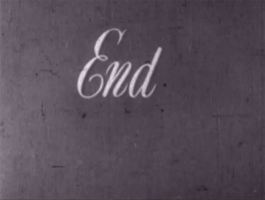
Complete broadcast of the 18th Academy Awards is available here (download only, 19 Mb). Writing awards begin at 32:00, presentation by Bette Davis. First she does a reading from the work of John Cowper Powys, backed by dreamy music. You don’t get that at the Oscars these days! Actual announcement and polite applause is at 36:32. “He won’t be here? Is he in Switzerland? Well, our congratulations to Mr. Schweizer.”
This moment happens to be included as one of the selections at the official Oscars site (scroll down, second audio clip). The only film I can find from the evening is the set of restaged presentations found on that page. (A writing award is included, for once.)
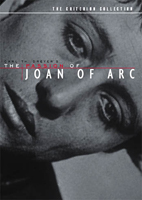
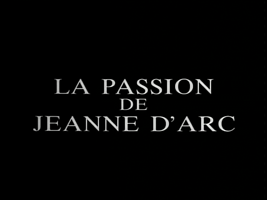



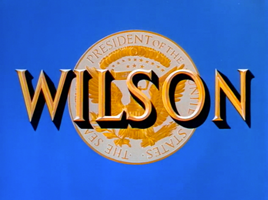
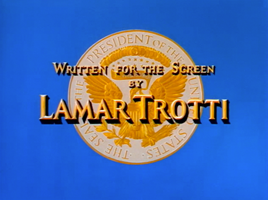
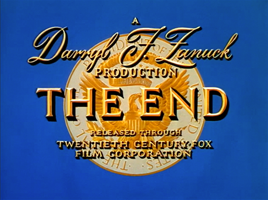
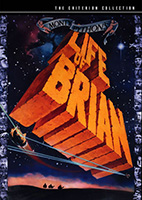
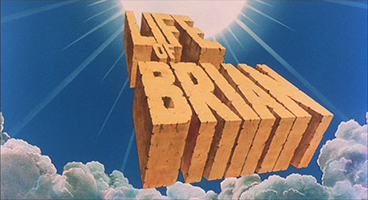
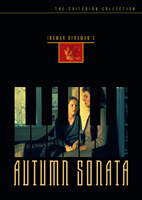 2013:
2013: 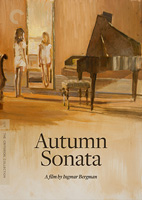
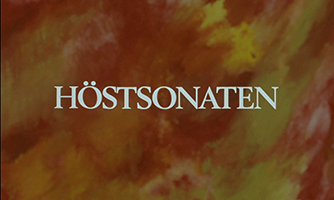
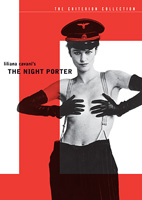
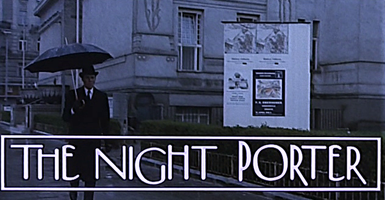
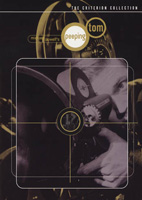 (out of print since 4/10)
(out of print since 4/10)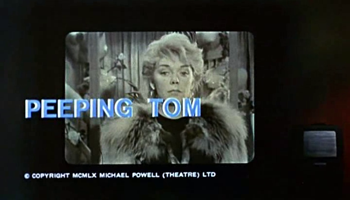
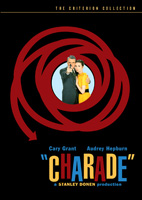 2010 Blu-ray:
2010 Blu-ray: 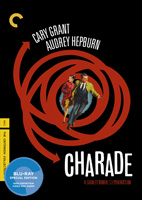

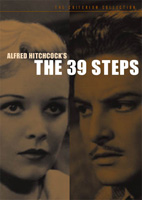 2012:
2012: 